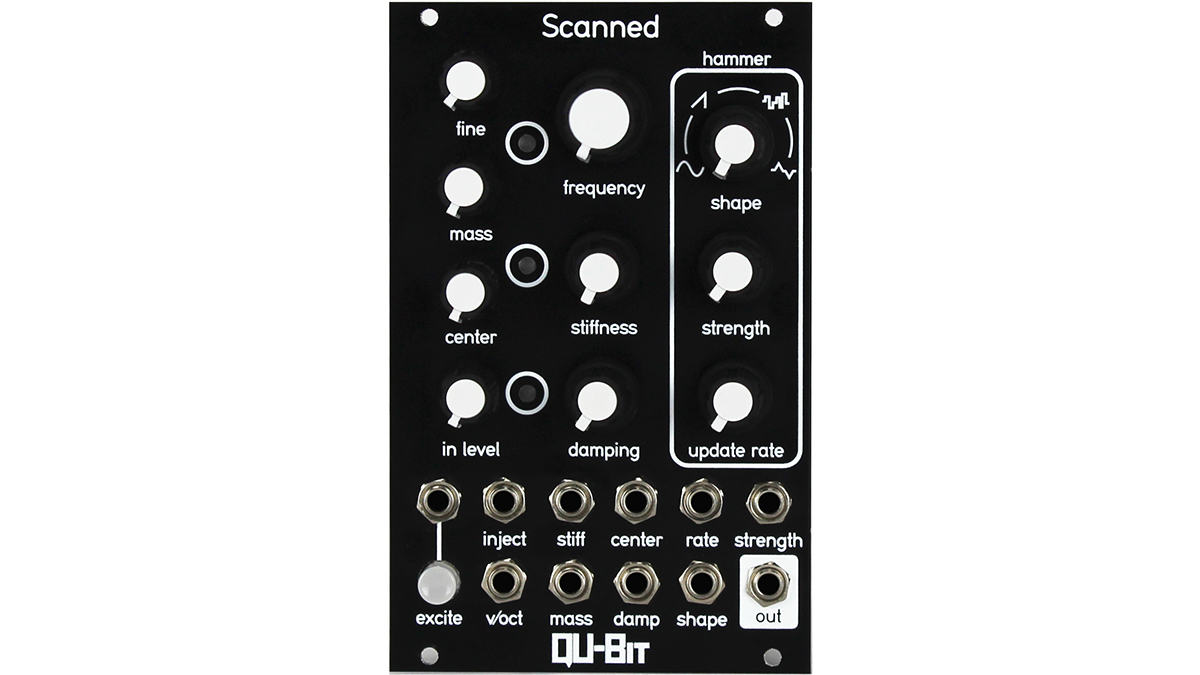Qu-Bit breaks new ground with the Scanned oscillator Eurorack module
First hardware implementation of scanned synthesis
Qu-Bit Electronix has created the first hardware implementation of scanned synthesis in the form of its Scanned Eurorack module.
Scanned animates wavetables in real-time, a method which was originally used by the pioneer of computer music, Max Matthews, which has been seen in the software realm, but never in hardware.
With similarities to physical modelling, Scanned features controls for Mass, Stiffness, and Damping. All of which affect the 'virtual string' and how the sound changes through space and time. The difference here is that new sounds are created, not replications of acoustic sounds.
Animation of the waveform is achieved with the Hammer control, which determines the sound’s shape. The Hammer function will also determine whether Scanned is a free-running oscillator, or a triggered sound-source, which allows the module to function as a complete synth voice.
Of course, with the flexibility of Eurorack, you can use CV inputs and external audio to do the work of the Hammer's four functions.
Scanned is available on the QU-Bit website now priced at $349, with a choice of two finishes.

Qu-Bit Scanned highlights
- First hardware implementation of scanned synthesis
- Organic wavetable generation and animations
- Can be a free-running oscillator or triggered voice
- Inject input allows external audio or CV sources to excite the string
- Evolving timbral landscapes without external modulation
- Four hammer shapes with interpolation
- Aluminium front panel
Get the MusicRadar Newsletter
Want all the hottest music and gear news, reviews, deals, features and more, direct to your inbox? Sign up here.



I take care of the reviews on MusicRadar and Future Music magazine, though can sometimes be spotted in front of a camera talking little sense in the presence of real musicians. For the past 30 years, I have been unable to decide on which instrument to master, so haven't bothered. Currently, a lover of all things high-gain in the guitar stakes and never one to resist churning out sub-standard funky breaks, the likes of which you'll never hear.
“Excels at unique modulated timbres, atonal drones and microtonal sequences that reinvent themselves each time you dare to touch the synth”: Soma Laboratories Lyra-4 review
e-instruments’ Slower is the laidback software instrument that could put your music on the fast track to success









